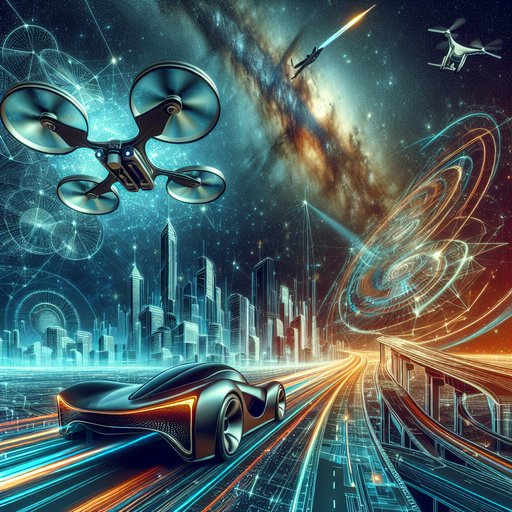 As we cross the threshold into a new era of transportation, remarkable innovations in space travel and air mobility are grabbing the global spotlight. From flying cars echoing science fiction dreams to drones delivering critical goods, these technological feats are forging new paths and redefining our perception of distance and time.
As we cross the threshold into a new era of transportation, remarkable innovations in space travel and air mobility are grabbing the global spotlight. From flying cars echoing science fiction dreams to drones delivering critical goods, these technological feats are forging new paths and redefining our perception of distance and time.
In the evolving landscape of transportation, space travel has undergone momentous transformations. Billionaire entrepreneurs like Elon Musk and Jeff Bezos are engaged in vigorous competition, driving significant private-sector advancements. This new 'Space Race' is not only igniting public interest but also accelerating an entirely new mode of travel. SpaceX's reusable rockets have shifted the economic equation of space travel, making reusing hardware instead of discarding it after a single-use an industry standard.
Reusable technology is bringing the luxury of space tourism and colonization of other planets within the realm of possibility. Meanwhile, at a much closer altitude, drones have revolutionized air mobility with diverse use-cases going beyond toy or hobby. Amazon and UPS, for example, have already begun experimenting with drone deliveries, potentially bypassing road traffic entirely and significantly speeding up transportation time. In addition to logistical benefits, drones may drastically increase the accessibility of medical services.
They could deliver life-saving antibodies, vaccines, or first aid kits to remote or disaster-stricken areas, ensuring that geographical challenges do not become a barrier to survival. Now, imagine soaring through the skies in your private vehicle, unconstrained by terrestrial traffic. Urban Air Mobility (UAM) ventures are making this a reality, with flying cars no longer a mere concept sketched on a futurist's drawing board. Vertical takeoff and landing (VTOL) vehicles are expected to reshape urban commutes, reducing traffic congestion and travel time.
Though the promise of flying cars and drones is appealing, their widespread adoption brings a fleet of challenges. Urban airspace management, safety concerns, and regulatory frameworks need to be meticulously constructed to ensure security and efficiency. Moreover, the adoption of this technology will require a radical infrastructure shift, from helipads serving as urban airparks to managing autonomous traffic in the sky. As we rev up to embrace the unconventional yet exciting future of space exploration, flying cars, and drones, the boundaries separating science fiction from reality are dissolving.
Still, the path ahead is filled with many unknowns as complexities regarding viability and social acceptability loom. Ultimately, as we soar higher and further, it is critical to ground these developments in ethical and sustainable frameworks.












































